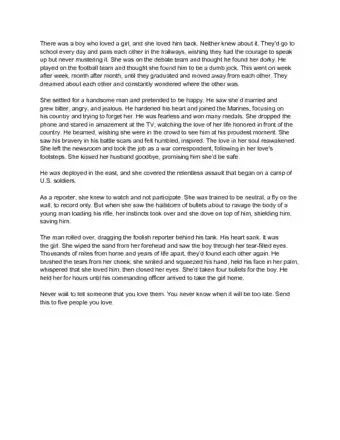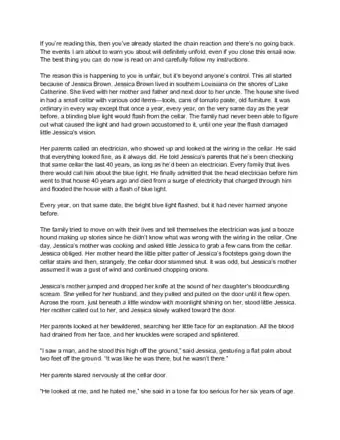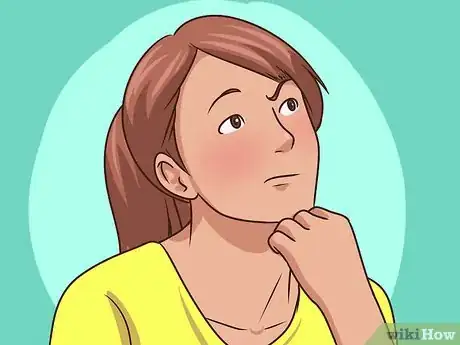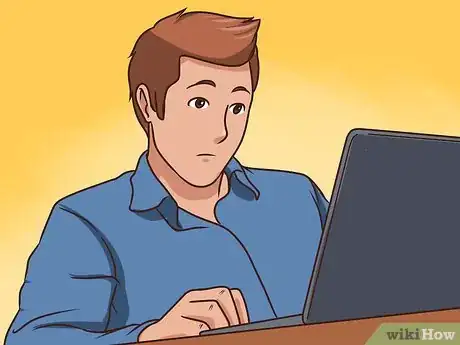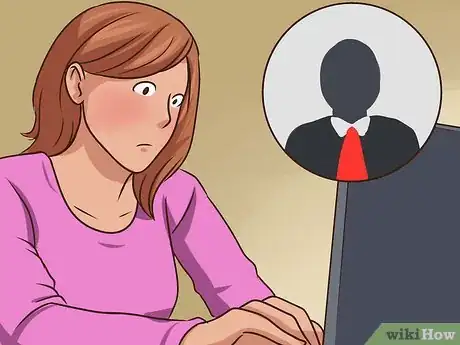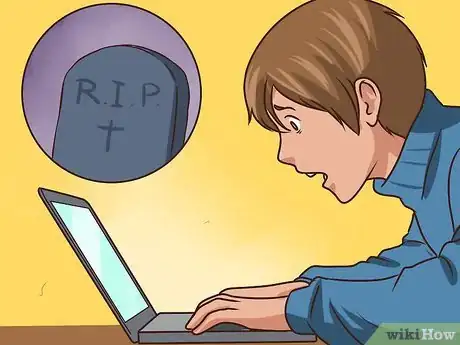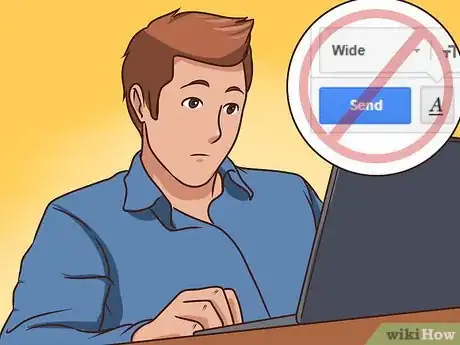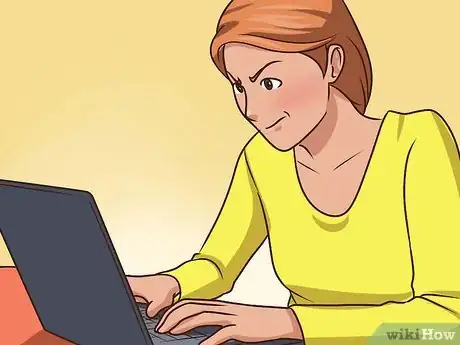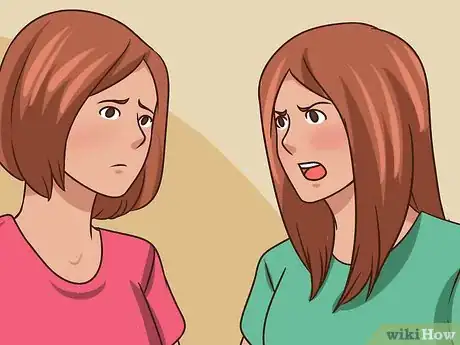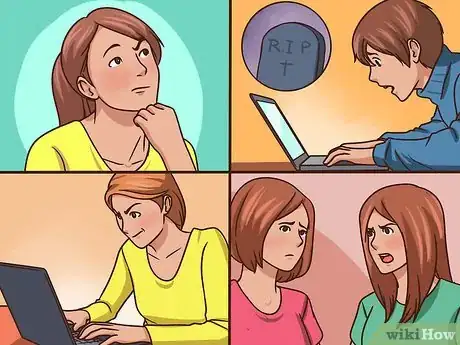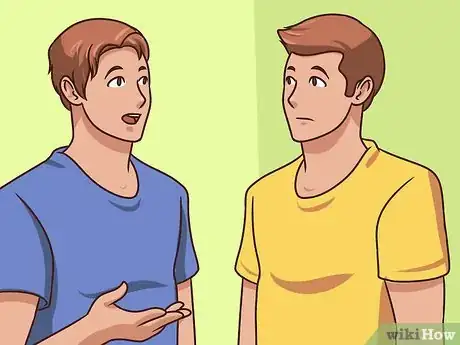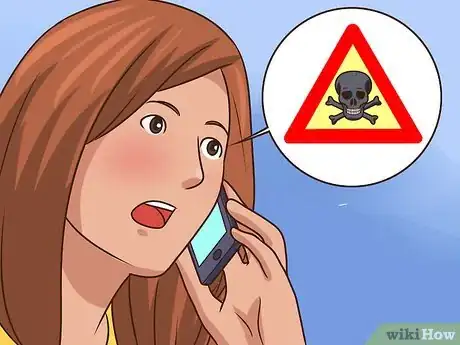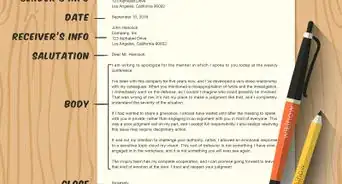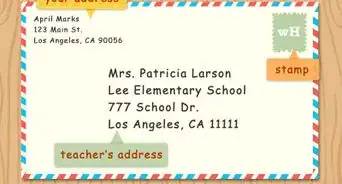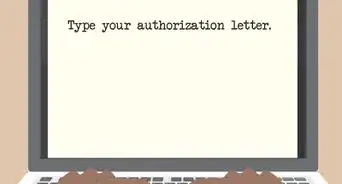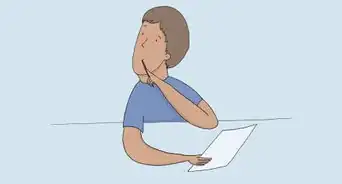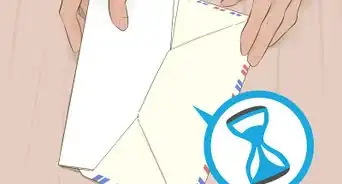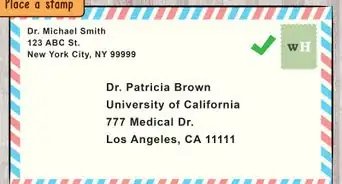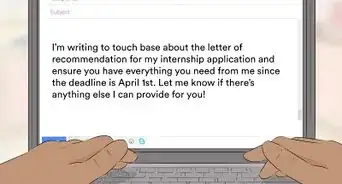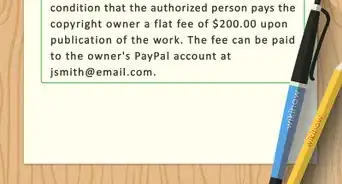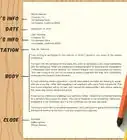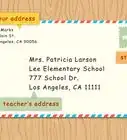wikiHow is a “wiki,” similar to Wikipedia, which means that many of our articles are co-written by multiple authors. To create this article, 77 people, some anonymous, worked to edit and improve it over time.
There are 7 references cited in this article, which can be found at the bottom of the page.
wikiHow marks an article as reader-approved once it receives enough positive feedback. This article received 29 testimonials and 94% of readers who voted found it helpful, earning it our reader-approved status.
This article has been viewed 299,699 times.
Learn more...
You come home from school or work. You take off your shoes, turn on the TV and check your email. You look around and see a message. You read it and you realize it's a piece of chain mail with a threat! If you don't forward it to 10 people, you'll get a frightening consequence. What to do? This how-to explains how to deal with this (this also works on comments on such sites as YouTube).
Steps
Sample Chain Letters
Avoiding Getting Creeped Out
-
1Think: What is the chain mail?[1] Is it, "BBQ at my house! I won't like if you don't come!"? If it is, you're fine (it's not really an alarming thing, just a friend who expects you to show up and might be sore at you if you don't). If not, continue on.
-
2Don't get drawn into reading it. Usually at the top there is something such as, "Don't read this" or "Stop". If there is, you should stop and delete it. Chain letters often tell you to "read" or "don't read" as a ploy, playing on your initial curiosity so if you read them, they'll eventually hit you with a bunch of baloney designed to push your panic button or use any other emotion you have against you for one purpose only: to get you spreading it further. However, if you are curious, or a rebel or just want to read it, continue. It's just a piece of text with maybe some graphics and animations. It can't actually do anything to you.[2]Advertisement
-
3Stay rational and sensible. Often the email or comment will be some story, commonly about some monster or fictional dead kid attacking people. Don't lose your head and get scared. There's no such thing as monsters, you've known that since you were small. No chain letter is going to cause one to blip into existence to kill you or anyone else. You know dead people are dead, and can't go around attacking you, pulling you down some nonexistent well or do any of the things these supposedly creepy chain letters claim. None of these creepy stories forwards can actually cause that to happen, either. If you choose to read it, keep in mind the fact that every one of these scary chain email stories are absolutely untrue. Keep thinking this as you read it.[3]
-
4Understand that the consequences of not following along with what the chain communication do not exist. After you read the story, it will say something like, "If you do not send this to ten more people, you will die in two days." Think again: Will this really happen to you? Will you actually die because you didn't send an email? How is it even possible that a made up story and text and pixels created by some anonymous hoaxer can actually kill you? It can't, any more than your computer monitor and keyboard. There's no more chance of a piece of made-up email tracking you down and killing you than there is of your computer suddenly coming to life and giving you a hug or a slap. Chain letter emails are not living beings and they are not magic. They can't physically do any more harm to anyone than an email you personally write.[4]
-
5Don't send it to anyone else. Doing this stops other people getting it and passing it on and it getting worse.[5]
-
6Keep the email. Even if it is absolutely creepy, keep the mail and smash it. Write out all of the things wrong with it and make yourself laugh at the utter ridiculousness of the story and the threat attached. Keeping the message is also a good way of stopping a troublesome emailer: you tell someone (teacher, parent, friend, etc.) you have proof of getting this unwanted email. If convenient, ask anyone else who is definitely not creeped out by the chain letter for their ideas. If you get them to dissect and ridicule the story for the fake-creepy, absurd junk it is, you and probably them will end up having a good laugh over it. This completely turns the tables on whoever actually started the chain letter that creeped out the unthinking, easily scared people who got it before you did and passed it on. Being a chain-breaker is good and never killed anyone.
-
7Confront the sender. The person that sent you the chain letter sent it because they either thought it was funny or were duped into sending it. If you know the person who sent you the email, let them know that the letter is fake and that they shouldn't send it to people.[6]
-
8If they send you another email, follow steps 1-7 again.
-
9If the person sends you three or more emails, tell someone else. You can even report them to their internet service provider if they keep sending you unwanted email. The situation is getting out of hand. Tell the person you will block their address if they keep sending you this junk. Chain letters are against the terms of service of many ISPs - they are a type of spam.[7]
-
10Report threats to a proper authority. If the chain letter includes a threat, such as: "I will break into your house myself and (enter bad event) you!", it may be appropriate to inform an authority (police, principal, etc). (see Warnings).[8]
Community Q&A
-
QuestionWhat if it threatens to kill my family? Like "if you do not send this to 20 people, your mom will die in 2 days?"
 Community AnswerChain letters often say scary things like this to convince people to keep spreading them. But it's always fake. Nothing is going to happen to anyone because of the chain letter. It's best to just not read those things and delete them as soon as you get them.
Community AnswerChain letters often say scary things like this to convince people to keep spreading them. But it's always fake. Nothing is going to happen to anyone because of the chain letter. It's best to just not read those things and delete them as soon as you get them. -
QuestionWhat if it says "this is real, you can research on it"?
 Community AnswerIt says that because it is using standard scare tactics to make you think that it has some basis. It doesn't - every chain letter is a threat, a falsehood and should be ignored. If you feel pressured or threatened by it, put it into the trash and press delete. All done, you're free.
Community AnswerIt says that because it is using standard scare tactics to make you think that it has some basis. It doesn't - every chain letter is a threat, a falsehood and should be ignored. If you feel pressured or threatened by it, put it into the trash and press delete. All done, you're free. -
QuestionWhat if the chain mail adds examples of people who broke this mail and something bad happened to them?
 Community AnswerIt's still fake. There's no evidence the person actually received bad luck because of breaking a chain letter. Nothing will actually happen if you don't forward it.
Community AnswerIt's still fake. There's no evidence the person actually received bad luck because of breaking a chain letter. Nothing will actually happen if you don't forward it.
Warnings
- If you want to reply back, you should think of the possibilities of how they will react. Make the decision carefully and decide how you'll handle it if they take your reply badly. If they scream at you for replying back, telling them the chain letter is junk and not worth getting creeped out over, then you're probably better off without them as a friend, and it's their fault for being such a dunce and choosing to believe a rubbish chain email over you who they were supposed to think of as their friend.⧼thumbs_response⧽
- Don't tell the police unless the situation is dire or you feel very suspicious. Try to think it out before acting.⧼thumbs_response⧽
- Do not click on any links or open any enclosed files. Some hackers still use chain letters to spread malware.⧼thumbs_response⧽
References
- ↑ https://www.urbandictionary.com/define.php?term=Chain%20Mail
- ↑ https://www.factcheck.org/2008/03/that-chain-e-mail-your-friend-sent-to-you-is-likely-bogus-seriously/
- ↑ https://www.us-cert.gov/ncas/tips/ST04-009
- ↑ https://www.theverge.com/2018/9/23/17890516/forward-this-or-youll-die-in-seven-days-on-the-persistence-of-chain-letters
- ↑ https://datcp.wi.gov/Documents/ChainLetters115.pdf
- ↑ https://www.npr.org/templates/story/story.php?storyId=91402876
- ↑ https://datcp.wi.gov/Documents/ChainLetters115.pdf
- ↑ https://www.womenslaw.org/about-abuse/safety-tips/safety-while-using-internet/safety-when-using-email/what-should-i-do-if-i-0
About This Article
If you've received a chain letter that has a creepy story or asks you to do something, don't worry. These letters are usually just jokes or a way to spread computer viruses. Don't click any links or open any attached files, since these can contain viruses or malware. They’ll often try to get you to share the email to avoid some bad thing happening, but just ignore it. That way, you’ll break the chain and stop other people from getting the message. Even if it came from someone you know, the person’s account might have been hacked. If you’re unsure if an email is real or not, don’t be afraid to ask someone else for a second opinion. For more tips, including how to report an email account that keeps sending you chain letters, read on.
